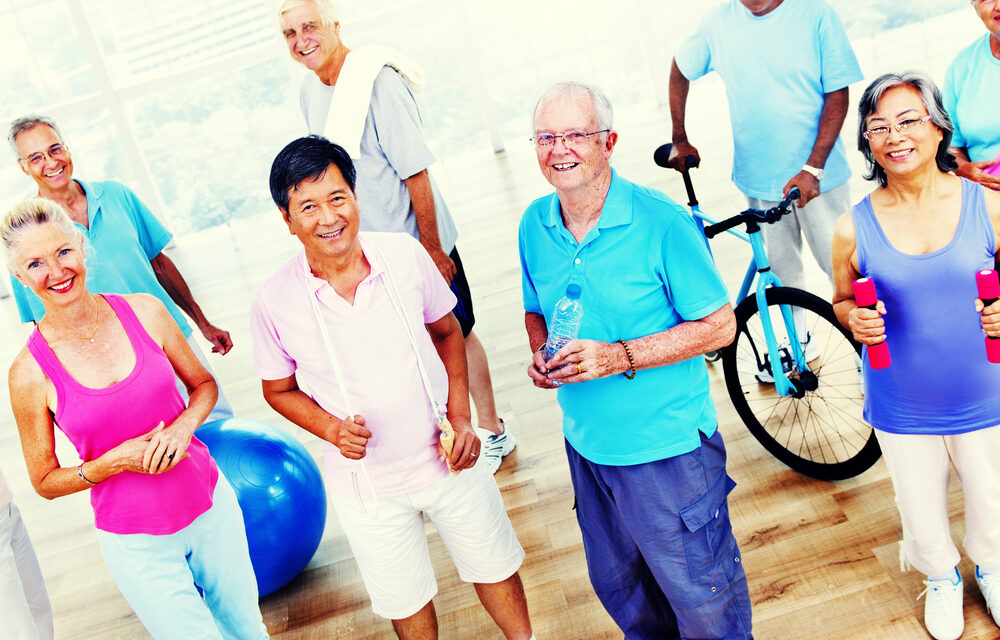By Sarah Seweryniak, Communications Content Specialist at Elderwood
Our senior years are a crucial time for maintaining health. Maintaining an active lifestyle and exercising contribute to quality of life, mobility, and injury prevention. Yet many people fail to exercise due to time constraints or lack of physical stamina.
It is important to consult your health provider prior to beginning an exercise program in order to develop fitness goals that are appropriate for your needs. It is also important to avoid engaging in exercise or a range of motion that is uncomfortable or painful. “It’s important to make sure your doctor approves of you exercising, and to see if there are any instructions or limitations depending on your medical condition,” says Steven Johnson, Elderwood Wellness Coordinator. “A fitness assessment is an important tool to provide feedback, track improvement, and motivate commitment,” adds Johnson.
Get started, stay motivated, and find new activities with these fitness tips.
- Find a fitness routine you enjoy. If you’re planning on committing to an exercise program, the best way to ensure its success is through identifying activities you enjoy. If you’re not sure where to begin, according to Harvard Health, walking can help seniors stay mobile and independent. Johnson agrees, saying, “The easiest way to improve health is to walk more. It’s an easy and manageable goal, and can be done in 10-minute segments in the morning, afternoon, and evening.” Johnson says, “It’s important to maintain a regular schedule. Everyone should be physically active about 5 to 6 days a week. It can be anything from walking to dancing. Ideally, everyone should also include strength training 2 to 3 days a week to build and maintain muscle mass.”
- Start slowly. Beginning a fitness routine can be daunting. Be kind to yourself and slowly ease into exercise. After the first few workouts, you may experience some aches and pains with muscle soreness. Within a few weeks, you’ll notice less soreness and gain more flexibility, strength, and endurance. Listen to your body if you feel like you need to rest. It’s okay to ease up and modify exercise, or take a day or two off to allow your body to recover.
- Incorporate healthy eating. While living an active lifestyle is important, incorporating healthy nutrition is essential to maintaining balance and fueling your body. Healthy eating can help seniors stay active longer, which improves mental and physical health. Adopt a balanced diet comprised of whole unprocessed foods to improve energy, metabolism, and bone health. Aim for natural colorful foods like fruits, vegetables, legumes, starches, and proteins.
- Challenge and reward yourself. Continue to challenge yourself as you progress through your fitness journey by increasing the duration of your walk, increasing your weights during strength training, or trying new workouts. Celebrate and reward yourself when you reach new milestones.
Engaging in a fitness routine takes commitment, but achieving your goals is cause for celebration, especially upon noticing positive results. “After a few weeks, people usually have more energy, sleep better, and have less difficulty performing activities of daily living,” says Johnson.












